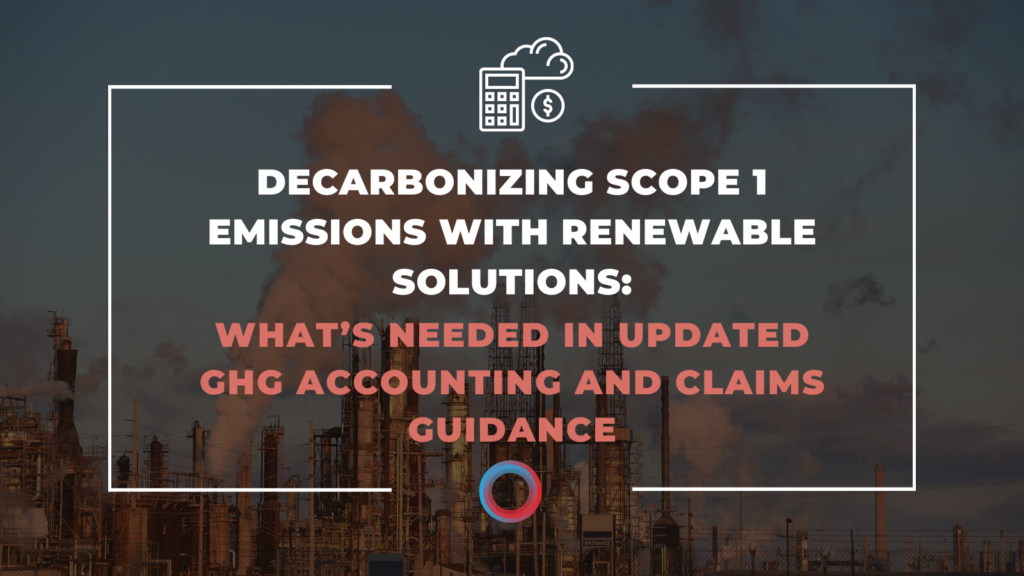“Large energy buyers depend on clear greenhouse gas accounting and claims guidance to help shape, validate, and communicate their renewable energy purchases and emissions reductions. Buyers are accelerating their efforts to decarbonize Scope 1 emissions, and they’re working with a range of innovative technologies and financing and implementation models. Buyers need an accounting and claims framework that aligns with those innovations so that we can – together – drive the decarbonization that science tells us we need.”
Blaine Collison, Executive Director, Renewable Thermal Collaborative

More and more large industrial, institutional, and commercial energy users are turning their attention to decarbonizing their thermal energy use (Scope 1). Their efforts highlight the importace of timely updates to Scope 1 greenhouse gas (GHG) accounting and claims frameworks, and the need for those updates to properly address emerging and innovative decarbonization strategies.
Thermal energy accounts for 50% of final global energy demand: large energy users are considering multiple renewable energy solutions to address these emissions, including renewable natural gas (RNG), green hydrogen, beneficial electrification, solar thermal, biogas, and sustainable biomass.
Large energy users rely on stakeholder-based, credible GHG accounting and claimsframeworks because they:
- Create a standardized mechanism to ensure emissions accounting and reduction accuracy.
- Help energy users understand how different renewable strategies and fuels contribute to achieving GHG reduction goals.
- Provide clarity for shareholders, investors, and other stakeholders on organizations’ energy purchases, progress, and performance.
- Inform buyers on which actions are acceptable to meet the requirements of different climate initiatives; e.g., Science Based Targets Initiative (SBTi), the Carbon Disclosure Project (CDP), and others.
- Allow for apples-to-apples comparison between different energy users to create and maintain standings and friendly market competition.
Large energy users have consistently reported uncertainty around the current Scope 1 accounting and claims guidance in the World Resources Institute’s (WRI) Greenhouse Gas Protocol. Many companies report reluctance to advance decarbonization efforts without clear guidance in place for fear that projects they undertake now will ultimately be ruled ineligible.
Buyers have identified specific questions and uncertainties around decarbonized fuels such as RNG and green hydrogen, including eligibility and applicability of thermal instruments which are analogous to renewable energy credits (RECs) for electricity, and biogenic emissions tracking. Under the most recent guidance, biogenic CO2 emissions are tracked “out-of-scope,” separate from fossil CO2 reporting. It is vital for near-term decision-making to know if biogenic CO2emissions will remain separate or become combined with CO2 fossil reporting.
Additionally, without standardized guidance on how to track biofuels over their complete lifecycle, buyers also cannot be certain that biofuel purchases are actualizing emissions reductions.
Recent climate news underscores the urgency of decarbonization, and many large energy buyers are accelerating their efforts. Buyers are aware that WRI is working on GHG Protocol updates but realize that the timeline to complete this process has some degree of uncertainty.
The buyers working to decarbonize their Scope 1 energy use need interim guidance to help inform their near-term and expanding efforts. The Renewable Thermal Collaborative welcomes the opportunity to collaborate with interested stakeholders to explore pathways forward.

